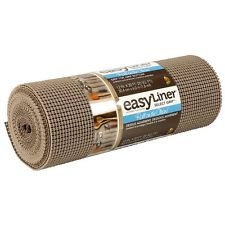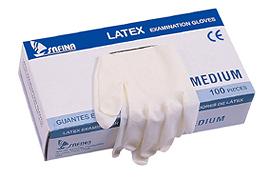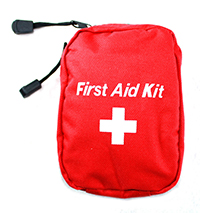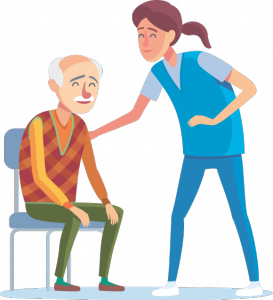25 Tips, Tricks, and Time-Savers from Veteran Certified Nursing Assistants
Every CNA has a great tip to share. What is yours? It could be something you discovered that makes your day a little smoother. Maybe it saves a little time or a few steps. Or perhaps it makes a patient more comfortable. And you realize that since you’ve thought of a tip, maybe other CNAs have, too.
What if you could learn about some of the tips that have helped other CNAs? Let’s do it!
Here is a collection of tips and tricks from other CNAs who want you to benefit from their wisdom and experience.
For a New CNA
- Carry a small notebook in which to write questions, information about assignments, or reminders about your patients. There is a great deal to remember, but if you write something down, you won’t have to think about it. That will clear your mind to learn new things. Cross items off as you get the information you need.
- Read your patients’ care plans as soon as you can to find out what needs to be done and how often. Each care plan will have the abbreviations used by the care facility and the types of treatments the patients receive. Ask the nurse if you have any questions. This is your chance to learn, so don’t be shy!just ask
Ask the nurse if you have any questions
- Make a kit that you can keep with you and use throughout your shift. Many CNAs like to carry a waist pack or fanny pack that they stock with a pen, permanent marker, tape, gloves, or whatever they usually need. If your hair is long, don’t forget elastic hair bands to make a ponytail.
- Get a pair of bandage scissors, also called medical scissors. The ends of the scissors are blunt, and one side is meant to get close to the patient’s skin but not cut it. You will find many uses for these scissors. Put a tape loop with your name on one of the finger holes so you’ll get the scissors back if you loan them.
- You’ll probably have a mentor or preceptor, but also observe how other experienced CNAs work. Everyone does things a little differently, so you can pick up tips just by watching.
Patient Care Tips
- Morning care can sometimes be accomplished with the patient sitting on the toilet. Many patients need time before they’re able to go, so get them settled. Then you can dress them, wash their faces, and comb their hair. Once they have urinated, they will be ready for the day.
- If some patients have a habit of refusing to bathe, eat, or walk, don’t ask them if they “want” to do it; ask them when they would like to do it. Having a choice can make all the difference in the world!
- For patients with dementia, ask their families to share a favorite memory about them or tell you something special about them. This will make a difference when the patient has a difficult day, because you’ll be able to respond differently.
 If plates seem to scoot away when residents try to feed themselves, use a square of rubber shelf liner to keep the plates in place. Use more pieces of the liner on chairs if the residents seem to slide off, too.
If plates seem to scoot away when residents try to feed themselves, use a square of rubber shelf liner to keep the plates in place. Use more pieces of the liner on chairs if the residents seem to slide off, too.- Never come to work if you’re sick. Patients are especially vulnerable and can become seriously ill from your cold. (Your co-workers don’t need your germs, either.)
Time-Savers
- During your shift report, as you walk from room to room, make a list of supplies that you realize you will need. Nothing slows you down like constant trips to the supply room.
- Stock your patients’ rooms with adequate supplies so you won’t have to make extra trips to the supply room or linen cart. There’s no need to overdo it; just a couple of the things that you or the patient uses most will do the trick.
 Keep extra gloves in one of your pockets. There will be gloves in the patient’s room and common areas, but sometimes you’ll need one immediately. Be prepared!
Keep extra gloves in one of your pockets. There will be gloves in the patient’s room and common areas, but sometimes you’ll need one immediately. Be prepared!- Combine toileting with ambulation. Once your patient is up, walk the hall before or after he or she uses the bathroom.
- Staying organized can be your best time-saver. Make a list of everything that has to be done, then prioritize. Cross each item off as you do it. If you have a workspace, keep it neat so you’ll be able to find what you need.
Working with Others
- Yes, you have your own work to do. But help others when you can, especially on those rare days when you’ve finished everything on your list. Take a few minutes to assist a colleague with repositioning or transferring a patient. It makes for good karma.
- If your shift is shorthanded, try working in pairs. It can be faster and easier to split the load. For example, one of you can take vital signs while the other one can start toileting the patients. You’ll save time, and the patients will still receive good care.
- It seems obvious, but don’t get caught up in any drama or conflicts in your unit. It’s never useful to gossip or backstab. After all, you need each other to get through the rough days.
- Let someone know when you go on a break or when you’re going to be with a resident for a while.
- If you have any misunderstandings or disagreements with someone, handle it directly with that other person. Don’t avoid the person or complain to other co-workers. You can usually resolve the matter with a single conversation.
You can usually resolve the matter with a single conversation
Just for You
- Body mechanics! Always protect your back by doing things properly. No shortcuts or cheating allowed. It’s one of the first things you learn in CNA training. So do it.
 Keep a small first-aid kit in your locker. A few Band-Aids, a small tube of antibiotic ointment, and a couple of doses of pain reliever are sufficient. You must never share these with patients, but a co-worker may thank you someday.
Keep a small first-aid kit in your locker. A few Band-Aids, a small tube of antibiotic ointment, and a couple of doses of pain reliever are sufficient. You must never share these with patients, but a co-worker may thank you someday.- Get the very best shoes you can afford. Your job depends on your feet, so treat them well. You shouldn’t have to break in new shoes if they fit well.
- Peri-Wash or baby wipes can keep a stain on your scrubs from becoming permanent. Use one of them as soon as possible after a spill or splash. Rub it into the spot with a wet washcloth and let the fabric air dry.
- It may seem obvious, but eat well and drink plenty of fluids. Your energy level depends on it. And sleep is more important than you think for both your mind and your body.
A CNA can be the busiest member of the health care team. A few tips and time-savers can make a big difference during your shift. And when you discover a new tip, pass it along!
 By
By 



